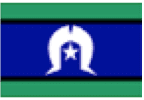On 1 April 2023 the Disability Support Pension (‘DSP’) Impairment Tables were updated. Here’s an update on what changes have been made and what they mean for you or your clients who may be trying to access the DSP.
What are the Impairment Tables?
To be eligible for the DSP, an applicant must meet the medical eligibility criteria. One aspect of this criteria, is scoring 20 points on the Impairment Tables, either on one table or across multiple tables. There are 15 tables, each covering different kinds of symptoms a person may experience. Each table has four levels of impairment severity ratings, mild (5 points), moderate (10 points), and severe (20 points.)
Why have the Impairment Tables Changed?
The previous Impairment Tables were due to expire in April 2022. This was extended to April 2023 to enable a review and consultation process, which was initially disrupted by the pandemic. In short, the tables were designed to sunset at some point, and that was an opportunity to review and make changes.
SSRV participated in the review and consultation process and pleasingly our feedback is reflected in the new Tables.
Not all of our suggestions have been adopted, and we will continue to advocate for further improvements through our ongoing systemic advocacy activities.
The new instrument, Social Security (Tables for the Assessment of Work-related Impairment for Disability Support Pension) Determination 2023, has now been finalised and commenced on 1 April 2023. It applies to claims for Disability Support Pension made on or after 1 April 2023.
What has changed?
The changes include a large number of small things, and two big things.
In terms of small changes, most of the Tables have revised wording and examples, which the Department of Social Services (DSS) believes will better reflect the impact of disability on a person’s functional ability. Our view is that some of these are good, others less so. But the takeaway is that it’s important to use the new Tables when considering which impairment rating should be assigned, of or if the assigned rating looks reasonable.
Changes to ‘Fully Diagnosed, Full Treated and Fully Stabilised’
Prior to the amendments, an applicant needed to demonstrate that their medical condition was ‘permanent,’ meaning that the condition was ‘fully diagnosed, fully treated and fully stabilised.’
The amendments remove the terminology of a ‘permanent condition.’ The Determination now reads that a medical condition must be ‘diagnosed, reasonably treated and stabilised.’
DSS has advised the language has been reformed to better reflect the actual requirements people must meet. The Explanatory Statement states that previously the legislation required a condition be ‘fully treated’ but in practice the Secretary would accept a condition that was ‘reasonably treated.’ The Explanatory Statement goes on to say that the term ‘fully treated’ overstated that actual requirements and made the threshold appear higher than it ought to have been. Our service observed that this led to confusion amongst applicants, their treating doctors and their supports, and it is hoped that clarifying this will help to simplify the process for applicants.
The amendments require a person’s condition to be reasonably treated with consideration to the treatment options available to them. The Social Security Guide has examples of when applicants may not proceed with treatment, but it can still be considered that their condition is ‘reasonably treated’ as they’ve exhausted all reasonable treatment options available to them. This includes situations when the treatment;
· Is prohibitively expensive or involves long travel
· Is experimental and may cause further harm to the individual
· Is not expected to result in significant functional impairment
Changes for mental health conditions
This change is a simple yet impactful, and worth talking about separately. Prior to the amendments a mental health impairment required that the corresponding condition was diagnosed either by a psychiatrist, or a doctor with evidence from a clinical psychologist.
We’ve seen the impact on our clients of such a specific diagnostic requirement, either through clients not being able to access the right kind of psychologist due to lack of availability or cost, or clients simply not understanding which psychologist they need to attend for DSP medical evidence.
We’re pleased to note this requirement has now been broadened, and evidence of diagnosis from a registered psychologist will be accepted.
DSP Help – Updated
Readers may be familiar with SSRV’s website DSP Help. SSRV created this website to help applications and health professionals with the process of applying for the DSP.
The website has information about the application process and eligibility criteria for the DSP. It also has a ‘Medical Evidence Bot’ which allows an individual to enter details about their medical impairments and then creates a personalised DSP Evidence Kit. The kit includes a template letter which can be provided to treating doctors to obtain new medical evidence.
DSP Help has now been updated to reflect the new changes.




